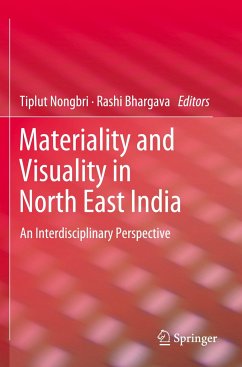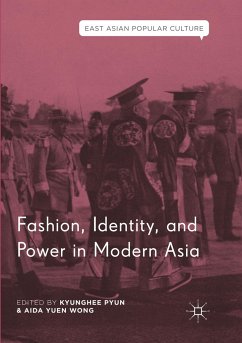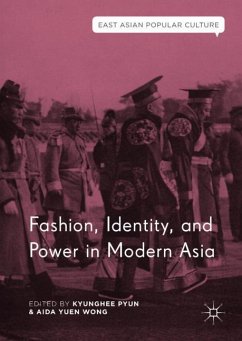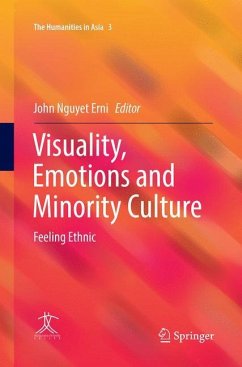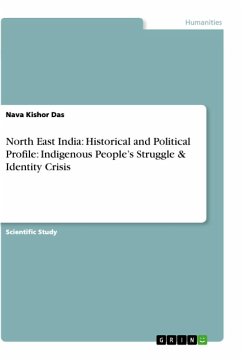
Materiality and Visuality in North East India
An Interdisciplinary Perspective
Herausgegeben: Nongbri, Tiplut; Bhargava, Rashi

PAYBACK Punkte
53 °P sammeln!
This edited book set in the context of North East India explores issues concerning symbols, meanings, representations, and social implications of materiality and visuality, as well as the dynamics of power, social reproduction, ideological dominance and knowledge production, from an interdisciplinary perspective. It seeks to answer the question of why some things matter more than others or what happens when certain things are made more visible than others. The book provides valuable insights into the process of identity construction through the use of cultural sources, both material and visual...
This edited book set in the context of North East India explores issues concerning symbols, meanings, representations, and social implications of materiality and visuality, as well as the dynamics of power, social reproduction, ideological dominance and knowledge production, from an interdisciplinary perspective. It seeks to answer the question of why some things matter more than others or what happens when certain things are made more visible than others. The book provides valuable insights into the process of identity construction through the use of cultural sources, both material and visual. Following on the debates/discussions on material and visual culture in the 1970s and 1980s, the book argues that instead of viewing objects as mere representation(s), one should see them as active agents in creating perceptions, bodily practices, discourses and perceptions of our social world. Each chapter in the book unravels and engages with these pertinent issues in order to arrive at amore comprehensive understanding of the status quo. The book is of interest to scholars of ethnicity, identity construction, politics and state, cultural studies, media studies, visual, social and cultural anthropology and sociology, as well as lay readers who want to learn more about the region.



